Ravaging Floods in Africa
Air Date: Week of September 20, 2024
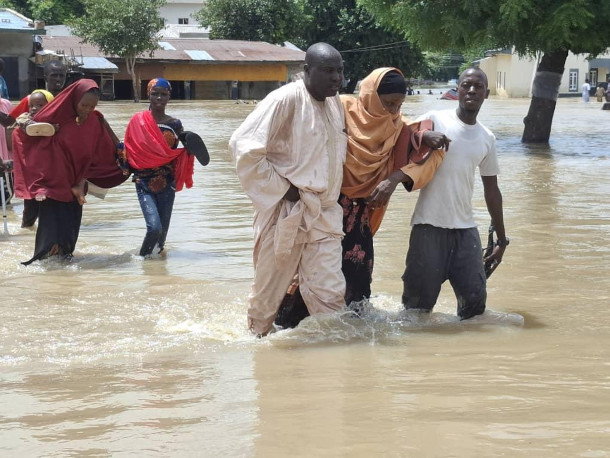
A woman is helped to safety in Maiduguri, Nigeria. (Photo: Courtesy of Isma’il Alfa Adulrahim)
West and Central Africa have been hit hard by extreme flooding in mid September that has claimed thousands of lives and left millions stranded in Nigeria and neighboring countries. Living on Earth intern Nana Mohammed is from northeast Nigeria and joins Host Steve Curwood to describe the perilous situation, which is prompting urgent pleas for wealthy nations to provide more climate adaptation assistance.
Transcript
CURWOOD: From PRX and the Jennifer and Ted Stanley Studios at the University of Massachusetts Boston, this is Living on Earth. I’m Steve Curwood.
BBC NEWSCASTER: “Now let’s take you to Nigeria, where the governor of Borno state has told the BBC that up to 2 million people have been affected by major flooding in the region…thousands of people are now desperately short of food and shelter.”
CURWOOD: West and Central Africa have been hit hard by the extreme flooding that has inundated many regions across the world in the last few weeks. These floods are leaving millions stranded. It’s yet another chapter in the story of global climate disruption that also includes Central Europe, where powerful waters have swept through towns and buckled bridges as well. And while the death toll in Poland and other parts of Central Europe is two or three dozen people, more than a thousand people have died in the parts of Africa slammed by the floods. Nigeria, Mali, Senegal, and Chad are among the most vulnerable regions in the world to climate impacts and with the least resources to cope, they are living the climate emergency. Our own intern Nana Mohammed, a student at the NYU Science, Health and Environmental Reporting Program is from Northeast Nigeria and got in touch with some journalists and scientists based there. And she joins me now – hi, Nana.
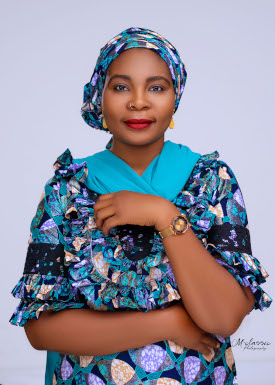
Nana Mohammed is a student in the NYU Science, Health, and Environmental Reporting Program and an intern at Living on Earth. (Photo: Courtesy of Nana Mohammed and New York University)
MOHAMMED: Hi, Steve.
CURWOOD: Nana, these floods are catastrophic. What are you hearing from sources on the ground?
MOHAMMED: Yeah, it’s really been chaotic. Numbers are notoriously difficult to confirm in a developing story like this. But, yes, officials said least 1,000 people have died and over 4 million have been affected by floods in these African countries. Maiduguri, Nigeria is one of the places that has been ravaged by this disaster. With a population of over 2 million people, it is the largest city in the northeast Nigerian state of Borno and borders the Lake Chad region, which includes countries like Chad, Cameroon, and Niger. Maiduguri is very hot and dry for most of the year, and the city actually experienced a drought before these floods. I called up journalist Ismail Alfa Abdulrahim, who reports for the New York Times from Maiduguri.
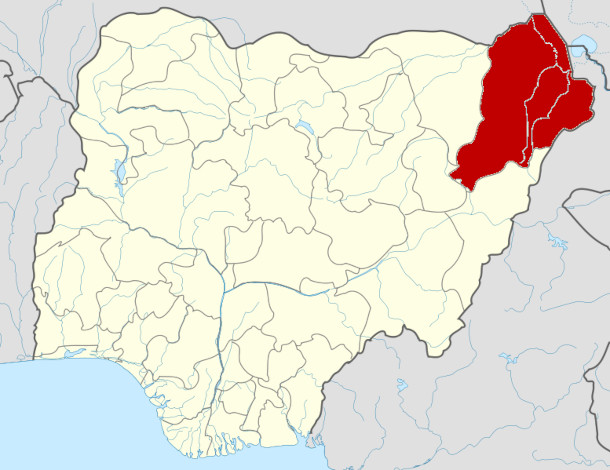
Maiduguri is located in the Northeastern Nigerian state of Borno, pictured here in red. (Photo: Himalayan Explorer based on work by Uwe Dedering, Wikimedia Commons, CC BY-SA 3.0)
ALFA ABDULRAHIM: Twenty-two of my family members were caught in this flood. So, I had to rush for rescue. So, I saw firsthand what it is to be in the water because houses were submerged, you see children being put on top of the roof so that they could be saved. So, the rescue for people became so challenging because the water was coming forcefully.
MOHAMMED: Ismail was also involved in those rescue operations for several days.
ALFA ABDULRAHIM: We've gone into places where people are trapped. There was one person I saw that had fractures in two places on his right thigh and he was in that situation for four days before we went to rescue him. There was a woman, a pregnant woman, who gave birth on Thursday, and on Friday, we went in to rescue her because most of those trapped have no access to water or food.
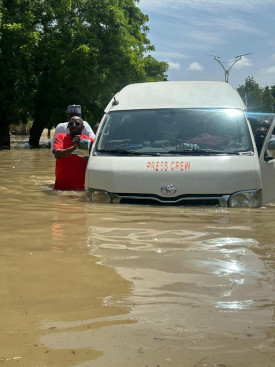
A press team tries to move through the floodwaters in Maiduguri. (Photo: Courtesy of Isma’il Alfa Abdulrahim)
CURWOOD: Boy, it sounds harrowing and truly terrifying.
MOHAMMED: Yeah, and honestly this disaster reminded me of the Boko Haram terrorist attack, which I reported on in 2014 and 2015. Hundreds of children went missing. The country was turned upside down and more than two million people were displaced across Nigeria’s northeastern states. But Ismail said this was worse.
ALFA ABDULRAHIM: A lot of unaccompanied Children and missing Children are recorded in this flooding much more than that of Boko Haram.
MOHAMMED: It just seems climate change and conflict are constantly uprooting people’s lives in this region.
CURWOOD: Yeah, nonstop instability. Hey, who else were you able to get in touch with, Nana?
MOHAMMED: Yeah, I also spoke to climatologist Dr. Vincent Nduka Ojeh from Taraba State University in Nigeria. I asked him about the role of climate change in the floods.
OJEH: Even as a climate scientist, I can tell you what happened in Borno is the first of its kind. The amount of rain that fell for a few minutes or few hours should have been a rain that should fall or distribute them for weeks.
MOHAMMED: Even weather forecasts, he said, couldn’t quite prepare the region for what was to come.
OJEH: I remember in the Northeast region, we had over 27 days of drought before the rain came back. And because I do weather forecasting for my state, like an early warning system, I told them in Taraba that rain will be coming back around the 15th, and when it comes, it's going to come as if it was angry, it’s going to come furious, so we're still going to experience flooding. Alright, so I knew and I was expecting that it was coming, but what one cannot actually know is the magnitude of the rainfall or the magnitude of the destruction.
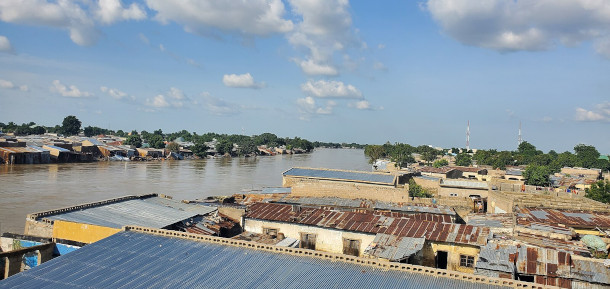
The flooding in Maiduguri inundated houses and left many trapped. (Photo: Mr. Snatch, Wikimedia Commons, CC0 1.0)
CURWOOD: Yeah, climate disruption is making weather patterns spin out of control. So, to what extent are people in Nigeria attributing these floods to climate change?
MOHAMMED: Well, Dr. Ojeh said there’s still somewhat of a disconnect.
OJEH: I still believe that there are still people around thinking that climate change is an act of God. It’s God that brings sunshine, it’s God that brings rainfall but climate deniers should be able to know by now that we are sitting on the cave of gunpowder.
CURWOOD: Hmm, a cave of gunpowder indeed. Well, what other factors, beyond climate disruption itself, contributed to the scale of the disaster here?
MOHAMMED: So, part of what made this flood so destructive in Maiduguri was the collapse of a dam that officials were warned about years ago. The Alau dam has been responsible for flooding in the state multiple times over the years. Experts believe changing and more intense rainfall patterns may have caused the infrastructure to decay over time. Dr. Ojeh told me the government ignored repeated calls to repair the dam. This time, the dam collapsed at 2am, when the residents of Maiduguri were fast asleep.
OJEH: They also told us a story, a very pitiable story about a couple sleeping. Their housing is on top of a flood of water passing under their room, and unfortunately, they had a baby. The baby rolled into the water and the water washed him away. So, the stories of what flood is doing in Nigeria is devastating.
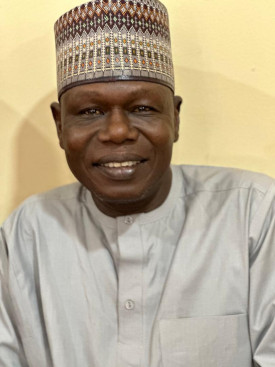
Isma’il Alfa Abdulrahim writes for publications including the New York Times and is based in Maiduguri. (Photo: Courtesy of Isma’il Alfa Adulrahim)
CURWOOD: Wow, so incredibly tragic, Nana.
MOHAMMED: Yes, I can’t imagine how horrible that must have been. In general, Dr. Ojeh said, Nigeria’s lack of resilient infrastructure has added another layer of climate vulnerability for the country.
OJEH: The issue of climate change is now weakening the already weak urban designs, already weak infrastructures. So, the blocks of those buildings are already weak. The bridges are already caving in, so bringing or throwing more problems in the future if care is not taken.
MOHAMMED: And Ismail Alfa, the New York Times journalist I talked to, said there are more pieces to the puzzle.
ALFA ABDULRAHIM: And another factor that comes glaringly to the face of the people is the corruption in the system. You know, money is voted or earmarked for certain projects that will have mitigated some of the effects of climate change, are diverted into private projects or it's changed into something different from the originally planned project. So, you find that people don't seem to understand the impact of climate change. There is the need for people to be aware of what climate change is all about. Because in our community now, people don't tend to believe in climate change.
MOHAMMED: But whether or not these people believe in climate change, Dr. Ojeh says Nigeria also just doesn’t have a lot of financial resources to deal with the disaster.
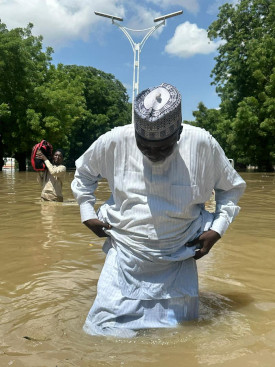
Isma’il was involved in rescue operations in Maiduguri for several days. (Photo: Courtesy of Isma’il Alfa Abdulrahim)
OJEH: We all know that the developing countries suffer more from the effects of climate change because of our weak infrastructures, our road network, our people are poor and all that.
MOHAMMED: So that is where nations in the Global North could step in through the UN loss and damage fund to help the Global South save lives in the face of climate disruption. The cost of loss and damage for developing countries is projected to be up to $400 billion by 2030. So far wealthy countries have only pledged around $700 million, a fraction of what is needed. To put this into context, the European Union immediately pledged about $11 billion dollars in emergency funds for the Central European countries cleaning up after those floods. So Dr. Ojeh says developing nations also need to get more serious about their own adaptation plans. And those countries need to get specific on what exactly they need from international finance.
OJEH: There must be something on the table that you are doing before you ask for help. So, the developing countries have a role to play, and the developed countries have their own role to play.
MOHAMMED: And it is up to individual nations to ensure funds get where they need to go.
CURWOOD: So where should loss and damage funding be directed in Nigeria? I mean, what kinds of projects could help the country better adapt to future climate disasters?
MOHAMMED: Well Nigeria’s facing a lot of environmental challenges. But in terms of flooding, Nigeria could improve drainage systems, build more flood walls and redirect development from flood-prone areas.
CURWOOD: Nana this is such a devastating event. What’s next for Nigeria, do you think?
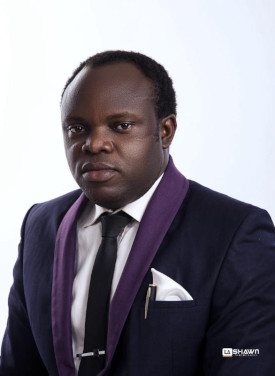
Dr. Vincent Nduka Ojeh is a climatologist and lecturer at Taraba State University in Nigeria. (Photo: Courtesy of Taraba State University)
MOHAMMED: Well, in the long run they will need to focus on those adaptations. But right now, while rescue efforts continue, Ismail Alfa says the government needs to act to avoid displacement and provide immediate safety for those impacted.
ALFA ABDULRAHIM: For the people of Maiduguri, I saw resilience on their faces. In terms of the recovery, what they needed is just a home, a roof over their heads and their private life should continue not to be in the camps.
CURWOOD: Honestly, it’s been difficult to hear about this tragic story Nana, but it’s so important that we keep humanizing the climate crisis. And thank you for reporting.
MOHAMMED: Thanks Steve.
CURWOOD: That’s Living on Earth intern Nana Mohammed.
Links
Bloomberg | “Africa Floods Affect 4 million People, Deepen Food Crisis”
Learn more about the Nigerian floods
Human Rights Watch | “Those Who Returned Are Suffering”
Climate Policy Initiative | “Landscape of Climate Finance in Nigeria”
Living on Earth wants to hear from you!
Living on Earth
62 Calef Highway, Suite 212
Lee, NH 03861
Telephone: 617-287-4121
E-mail: comments@loe.org
Newsletter [Click here]
Donate to Living on Earth!
Living on Earth is an independent media program and relies entirely on contributions from listeners and institutions supporting public service. Please donate now to preserve an independent environmental voice.
NewsletterLiving on Earth offers a weekly delivery of the show's rundown to your mailbox. Sign up for our newsletter today!
 Sailors For The Sea: Be the change you want to sea.
Sailors For The Sea: Be the change you want to sea.
 The Grantham Foundation for the Protection of the Environment: Committed to protecting and improving the health of the global environment.
The Grantham Foundation for the Protection of the Environment: Committed to protecting and improving the health of the global environment.
 Contribute to Living on Earth and receive, as our gift to you, an archival print of one of Mark Seth Lender's extraordinary wildlife photographs. Follow the link to see Mark's current collection of photographs.
Contribute to Living on Earth and receive, as our gift to you, an archival print of one of Mark Seth Lender's extraordinary wildlife photographs. Follow the link to see Mark's current collection of photographs.
 Buy a signed copy of Mark Seth Lender's book Smeagull the Seagull & support Living on Earth
Buy a signed copy of Mark Seth Lender's book Smeagull the Seagull & support Living on Earth

